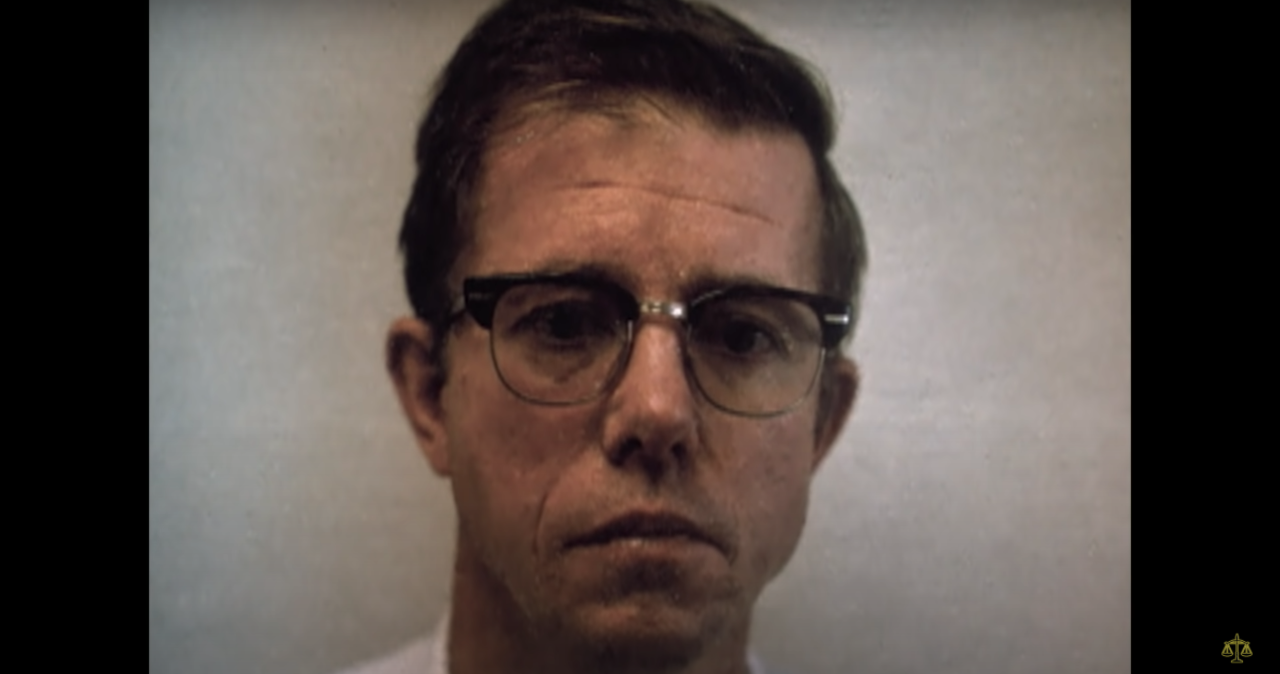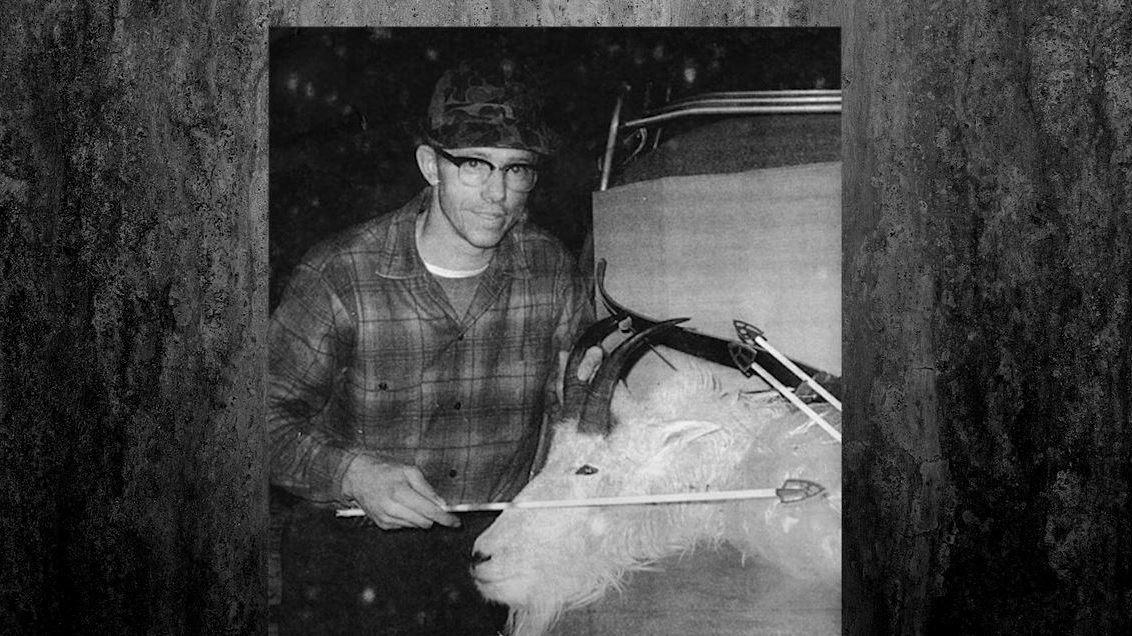Robert Hansen - A Disturbing Tale Of His Children's Involvement
Robert Hansen's children lived with the horrifying reality of their father's crimes, forever haunted by the knowledge of his heinous actions.
Robert Hansen was a serial killer who abducted, raped, and murdered at least 17 women in Alaska between 1971 and 1983. His victims were typically sex workers or women he met at bars. Hansen would often fly his victims to remote areas of Alaska, where he would hunt them down and kill them.
Hansen's children were unaware of their father's crimes until he was arrested in 1983. They were shocked and horrified to learn the truth about their father. Hansen's daughter, Karen, said that she "felt like my whole world had been turned upside down." Hansen's son, Robert Jr., said that he "couldn't believe that my father was capable of such evil."
- Learn More About Hannah Vannorman And Jonathan Roumie
- The Cinematic Legacy Of Hayley Mills And Roy Boulting A Timeless Collaboration
Hansen's children have struggled to come to terms with their father's crimes. They have had to deal with the stigma of being related to a serial killer, and they have had to live with the knowledge that their father took the lives of so many innocent women.
Robert Hansen Children
Introduction: Robert Hansen's children faced immense challenges growing up with a father who committed heinous crimes. This section delves into their experiences and the lasting impact on their lives.Key Aspects:- Emotional Trauma: Witnessing the arrest and subsequent revelations about their father's crimes caused profound emotional distress and psychological trauma.
- Social Stigma: The children faced social isolation and judgment from peers and the community, carrying the burden of their father's actions.
- Identity and Self-Esteem: The children grappled with feelings of shame, guilt, and a shattered sense of identity, struggling to reconcile their perception of their father with the reality of his crimes.
Personal Tragedies and Life Challenges
Introduction: Beyond the emotional turmoil, Robert Hansen's children faced personal tragedies and life challenges as a result of their father's crimes.Facets:- Family Dynamics: The family unit was irrevocably damaged, with relationships strained and trust broken.
- Financial Hardships: The children faced financial difficulties due to legal expenses and the loss of their father's income.
- Public Scrutiny: The media attention surrounding their father's case subjected them to relentless public scrutiny and speculation.
Seeking Closure and Healing
Introduction: In the aftermath of their father's crimes, Robert Hansen's children embarked on a journey of seeking closure and healing.Further Analysis:- Therapy and Support Groups: The children sought professional help and joined support groups to process their trauma and rebuild their lives.
- Confronting the Past: Some children chose to confront their father's crimes directly, seeking answers and a sense of understanding.
- Forgiveness and Acceptance: While forgiveness was a complex and personal choice, some children found solace in forgiving their father, not condoning his actions but seeking inner peace.
Robert Hansen Children
The children of Robert Hansen, a notorious serial killer, endured immense trauma and faced unique challenges. Here are seven key aspects related to their experiences:
- Emotional Trauma: Profound psychological distress from witnessing their father's arrest and learning of his crimes.
- Social Stigma: Isolation and judgment from peers and society due to their father's actions.
- Identity Crisis: Struggle to reconcile their perception of their father with the reality of his heinous acts.
- Damaged Family Dynamics: Irreparable harm to family relationships, trust, and overall family unit.
- Financial Hardships: Loss of income and legal expenses resulting in financial difficulties.
- Public Scrutiny: Relentless media attention and public speculation surrounding their father's case.
- Journey Towards Healing: Seeking closure and healing through therapy, support groups, and personal introspection.
These aspects intertwine and highlight the profound impact of parental criminality on children's lives. The children of Robert Hansen endured emotional turmoil, social isolation, and a shattered sense of identity. Their experiences underscore the far-reaching consequences of violent crimes and the resilience of the human spirit in the face of adversity.
Personal Details and Bio Data of Robert Hansen
| Name | Robert Christian Hansen |
|---|---|
| Birth Date | February 15, 1939 |
| Birth Place | Estherville, Iowa |
| Death Date | August 21, 2014 |
| Death Place | Spring Creek Correctional Center, Seward, Alaska |
| Occupation | Baker, Butcher, Hunter |
| Crime | Serial murder, kidnapping, rape, |
| Modus Operandi | Lured victims to his cabin, hunted them down, and killed them |
| Number of Victims | 17 confirmed, possibly more |
| Date of Arrest | October 27, 1983 |
| Sentence | 461 years in prison |
Emotional Trauma
The children of Robert Hansen experienced profound emotional trauma as a result of witnessing their father's arrest and learning of his heinous crimes. The sudden realization that their father, once a respected figure in their lives, was capable of such unspeakable acts shattered their sense of reality and safety.
This trauma manifested in various ways. Some children struggled with feelings of guilt and shame, believing that they had somehow contributed to their father's actions. Others grappled with anger and resentment, unable to reconcile the father they knew with the monster he had become. Nightmares, flashbacks, and intrusive thoughts plagued their minds, making it difficult to sleep, concentrate, or engage in everyday activities.
The children also faced the stigma and judgment of society. They were labeled as "serial killer's children," and their peers and community members treated them with fear and disgust. This isolation and rejection further compounded their emotional distress, leaving them feeling alone and ashamed.
The emotional trauma experienced by Robert Hansen's children highlights the far-reaching and devastating impact of parental criminality. The children's mental health and well-being were severely compromised, and they faced lifelong challenges as a result of their father's actions.
Social Stigma
The children of Robert Hansen faced severe social stigma and judgment from their peers and the wider community as a result of their father's heinous crimes. This stigma had a profound impact on their lives, leading to isolation, discrimination, and a shattered sense of self-worth.
- Isolation: The children were often isolated and ostracized by their peers, who feared or judged them based on their father's actions. This isolation extended to social events, school activities, and even public places, leaving the children feeling alone and ashamed.
- Discrimination: The children faced various forms of discrimination due to their association with Robert Hansen. They were denied opportunities for employment, housing, and education, simply because of their familial connection to a notorious criminal. This discrimination further marginalized and isolated the children.
- Damaged Reputation: The children's reputations were irrevocably damaged by their father's crimes. They were labeled as "serial killer's children," and this label followed them throughout their lives, casting a shadow over their own accomplishments and aspirations.
- Erosion of Self-Esteem: The constant judgment and rejection faced by the children eroded their self-esteem and sense of self-worth. They internalized the negative perceptions of others, believing that they were inherently flawed or tainted by their father's actions.
The social stigma experienced by Robert Hansen's children highlights the devastating and long-lasting consequences of parental criminality. The children were punished for crimes they did not commit, and they bore the burden of their father's actions throughout their lives. This stigma served as a constant reminder of their father's heinous deeds and made it extremely difficult for them to move forward and build fulfilling lives for themselves.
Identity Crisis
The children of Robert Hansen faced an immense struggle to reconcile their perception of their father with the reality of his heinous acts. This identity crisis had a profound impact on their sense of self, their relationships with others, and their overall well-being.
- Shattered Illusions: The children's perception of their father as a loving and protective figure was shattered when they learned of his crimes. This shattered illusion led to feelings of betrayal, confusion, and a profound loss of trust.
- Cognitive Dissonance: The children grappled with the cognitive dissonance between the father they knew and the monster he had become. They struggled to reconcile these two opposing realities, leading to feelings of guilt, shame, and self-doubt.
- Internalized Stigma: The children internalized the stigma associated with their father's crimes, believing that they were somehow tainted or flawed by his actions. This internalized stigma eroded their self-esteem and made it difficult for them to form healthy relationships.
- Search for Identity: The children embarked on a lifelong search for their own identity, separate from their father's crimes. They sought to define themselves by their own actions and accomplishments, rather than by their familial connection to a notorious criminal.
The identity crisis experienced by Robert Hansen's children highlights the complex and lasting impact of parental criminality on children's sense of self. The children were forced to confront the dark reality of their father's actions and to grapple with the implications for their own lives. This struggle for identity shaped their lives in profound ways, and it continues to be a source of pain and resilience for many of them.
Damaged Family Dynamics
The children of Robert Hansen endured irreparable harm to their family relationships, trust, and overall family unit as a direct consequence of their father's heinous crimes. The revelation of his double life and the unspeakable acts he committed shattered the family's sense of safety, stability, and love.
- Betrayal of Trust: The children's trust in their father was irrevocably broken when they learned the truth about his crimes. The realization that the man they loved and looked up to was capable of such evil left them feeling betrayed and disillusioned.
- Emotional Distance: The emotional distance between the children and their father grew wider as they struggled to process their conflicting emotions. Fear, anger, and disgust replaced the love and affection they once had for him, creating an unbridgeable chasm.
- Sibling Relationships: The siblings' relationships with each other were also affected by their father's crimes. They grappled with feelings of guilt, shame, and resentment, and some struggled to maintain close bonds due to the trauma they had endured.
- Family Stigma: The family as a whole carried the stigma associated with Robert Hansen's crimes. They faced judgment and rejection from their community, further isolating them and exacerbating the damage to their family dynamics.
The damaged family dynamics experienced by Robert Hansen's children highlight the devastating and long-lasting consequences of parental criminality on family relationships. The children's trust was shattered, their emotional bonds were broken, and the family unit was irreparably harmed. This trauma continues to affect them to this day, shaping their lives and relationships in profound ways.
Financial Hardships
The children of Robert Hansen faced severe financial hardships as a direct consequence of their father's crimes. The loss of income and mounting legal expenses placed a significant strain on their financial resources, exacerbating the emotional and social challenges they endured.
- Loss of Income: Robert Hansen's arrest and subsequent imprisonment resulted in the loss of his income, which had been the primary source of support for his family. This sudden loss of income left the children and their mother in a precarious financial situation.
- Legal Expenses: The legal proceedings surrounding Robert Hansen's crimes generated substantial legal expenses. The children were responsible for paying for their father's defense, as well as their own legal representation in related matters. These expenses further depleted the family's financial resources.
- Debt and Bankruptcy: The combination of lost income and mounting legal expenses led to overwhelming debt for the children and their mother. Some were forced to declare bankruptcy, further damaging their credit and financial stability.
- Impact on Education and Career: The financial hardships faced by the children also impacted their education and career prospects. Some were forced to drop out of school or postpone their education due to a lack of financial resources. Others struggled to find stable employment due to the stigma associated with their father's crimes.
The financial hardships experienced by Robert Hansen's children highlight the far-reaching and devastating consequences of parental criminality. The loss of income and legal expenses placed a significant burden on the children, affecting their education, career prospects, and overall well-being. The financial challenges they faced compounded the emotional and social trauma they endured, creating a multitude of obstacles for them to overcome.
Public Scrutiny
The children of Robert Hansen faced relentless media attention and public speculation surrounding their father's case. This scrutiny subjected them to intense and often harmful examination, further compounding the trauma they endured.
- Intrusive Media Coverage: The media descended upon the children and their family, relentlessly pursuing interviews and exploiting their story for sensationalist headlines and news segments. This intrusive coverage invaded their privacy and made it difficult for them to grieve and process their emotions in peace.
- Public Judgment and Speculation: The children were subjected to public judgment and speculation about their own involvement in their father's crimes. This speculation, often fueled by unfounded rumors and misinformation, further stigmatized them and made it difficult for them to move on with their lives.
- Emotional Exploitation: The media often portrayed the children as victims or accomplices, exploiting their pain and trauma for emotional impact. This sensationalized coverage further victimized the children and made it difficult for them to escape the shadow of their father's crimes.
- Impact on Mental Health: The relentless media scrutiny had a significant impact on the mental health of Robert Hansen's children. The constant attention, judgment, and speculation exacerbated their emotional distress and made it difficult for them to heal and rebuild their lives.
The public scrutiny faced by Robert Hansen's children highlights the profound and lasting impact of media attention on the lives of victims' families. The intrusive coverage, public judgment, and emotional exploitation they endured further traumatized them and made it extremely difficult for them to move forward with their lives.
Journey Towards Healing
In the aftermath of Robert Hansen's crimes, his children embarked on a lifelong journey towards healing. This journey involved seeking closure and healing through various means, including therapy, support groups, and personal introspection.
Therapy provided a safe and supportive space for the children to process their trauma, grieve their losses, and develop coping mechanisms. Through therapy, they were able to address the complex emotions they experienced, such as guilt, shame, anger, and confusion. Support groups also played a crucial role in the healing process, offering a sense of community and belonging among individuals who had endured similar experiences. By sharing their stories and experiences, the children found solace and realized that they were not alone in their struggles.
Personal introspection was another important aspect of the children's healing journey. They engaged in self-reflection and sought to understand the impact of their father's crimes on their own lives. This process allowed them to gain insights into their own resilience, strengths, and values. Through personal introspection, they were able to develop a sense of self-worth and identity separate from their father's actions.
The journey towards healing for Robert Hansen's children was a long and challenging one, but it was essential for their recovery and well-being. Through therapy, support groups, and personal introspection, they were able to find closure, heal their wounds, and rebuild their lives.
FAQs on Robert Hansen's Children
This section addresses frequently asked questions (FAQs) related to Robert Hansen's children and their experiences.
Question 1: What were the primary challenges faced by Robert Hansen's children?
Robert Hansen's children faced numerous challenges, including emotional trauma, social stigma, identity crisis, damaged family dynamics, financial hardships, public scrutiny, and the need for healing.
Question 2: How did Robert Hansen's children cope with the trauma and stigma they experienced?
Robert Hansen's children sought healing through various means, including therapy, support groups, and personal introspection. These methods provided them with a safe space to process their emotions, connect with others who had similar experiences, and develop coping mechanisms.
Summary: Robert Hansen's children endured immense challenges and trauma as a result of their father's crimes. Through resilience, support, and a commitment to healing, they navigated these challenges and rebuilt their lives.
Conclusion
Robert Hansen's children faced unimaginable challenges and trauma as a result of their father's heinous crimes. Their experiences highlight the far-reaching and devastating impact of parental criminality on children's lives. Despite the adversity they endured, these individuals have shown remarkable resilience and strength in seeking healing and rebuilding their lives.
Their journey serves as a reminder of the importance of support, compassion, and a commitment to justice for victims of crime and their families. By shedding light on the experiences of Robert Hansen's children, we can raise awareness about the hidden consequences of parental criminality and the need for comprehensive support systems for those affected.
Article Recommendations



Detail Author:
- Name : Darlene Gleason I
- Username : ureinger
- Email : ofelia60@rosenbaum.org
- Birthdate : 1987-06-13
- Address : 7334 Skiles Meadows New Brisa, ME 39354
- Phone : +16403047643
- Company : McLaughlin, Grimes and Cruickshank
- Job : Respiratory Therapy Technician
- Bio : Aut voluptas inventore possimus quo. Consequatur repellendus eaque sit quaerat. Aut ut quam illum repellat et.
Socials
twitter:
- url : https://twitter.com/crystal_xx
- username : crystal_xx
- bio : Ipsam beatae earum animi reprehenderit omnis similique ea. Dolorem iste debitis facilis culpa dolorum eos. Ea explicabo natus fugit et.
- followers : 931
- following : 2148
tiktok:
- url : https://tiktok.com/@crystal5038
- username : crystal5038
- bio : Quo assumenda voluptatum quia dicta velit id fugiat.
- followers : 3786
- following : 2556
facebook:
- url : https://facebook.com/price2007
- username : price2007
- bio : Tempore consequatur numquam dolor facilis natus sit.
- followers : 3104
- following : 1324